Daniel Fabian
Co-RedTeam: Orchestrated Security Discovery and Exploitation with LLM Agents
Feb 02, 2026Abstract:Large language models (LLMs) have shown promise in assisting cybersecurity tasks, yet existing approaches struggle with automatic vulnerability discovery and exploitation due to limited interaction, weak execution grounding, and a lack of experience reuse. We propose Co-RedTeam, a security-aware multi-agent framework designed to mirror real-world red-teaming workflows by integrating security-domain knowledge, code-aware analysis, execution-grounded iterative reasoning, and long-term memory. Co-RedTeam decomposes vulnerability analysis into coordinated discovery and exploitation stages, enabling agents to plan, execute, validate, and refine actions based on real execution feedback while learning from prior trajectories. Extensive evaluations on challenging security benchmarks demonstrate that Co-RedTeam consistently outperforms strong baselines across diverse backbone models, achieving over 60% success rate in vulnerability exploitation and over 10% absolute improvement in vulnerability detection. Ablation and iteration studies further confirm the critical role of execution feedback, structured interaction, and memory for building robust and generalizable cybersecurity agents.
Design Patterns for Securing LLM Agents against Prompt Injections
Jun 11, 2025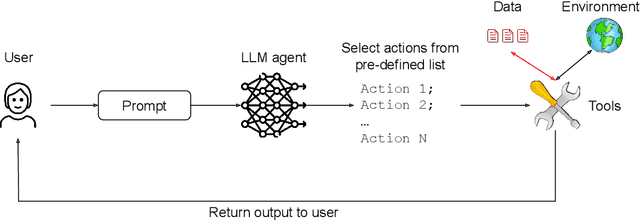
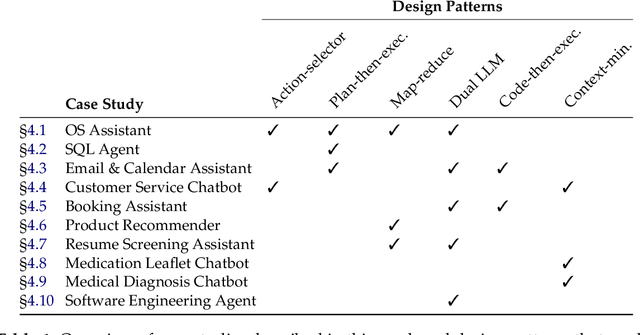
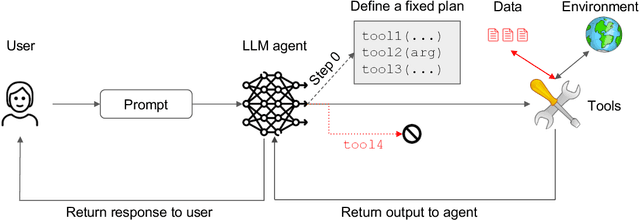
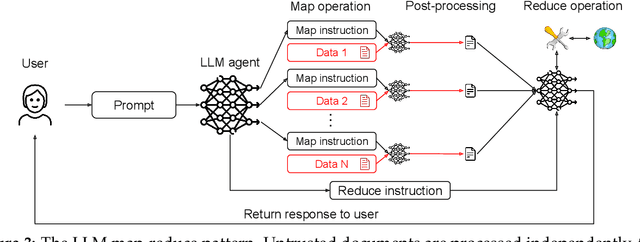
Abstract:As AI agents powered by Large Language Models (LLMs) become increasingly versatile and capable of addressing a broad spectrum of tasks, ensuring their security has become a critical challenge. Among the most pressing threats are prompt injection attacks, which exploit the agent's resilience on natural language inputs -- an especially dangerous threat when agents are granted tool access or handle sensitive information. In this work, we propose a set of principled design patterns for building AI agents with provable resistance to prompt injection. We systematically analyze these patterns, discuss their trade-offs in terms of utility and security, and illustrate their real-world applicability through a series of case studies.
Defeating Prompt Injections by Design
Mar 24, 2025Abstract:Large Language Models (LLMs) are increasingly deployed in agentic systems that interact with an external environment. However, LLM agents are vulnerable to prompt injection attacks when handling untrusted data. In this paper we propose CaMeL, a robust defense that creates a protective system layer around the LLM, securing it even when underlying models may be susceptible to attacks. To operate, CaMeL explicitly extracts the control and data flows from the (trusted) query; therefore, the untrusted data retrieved by the LLM can never impact the program flow. To further improve security, CaMeL relies on a notion of a capability to prevent the exfiltration of private data over unauthorized data flows. We demonstrate effectiveness of CaMeL by solving $67\%$ of tasks with provable security in AgentDojo [NeurIPS 2024], a recent agentic security benchmark.
Rows from Many Sources: Enriching row completions from Wikidata with a pre-trained Language Model
Apr 14, 2022

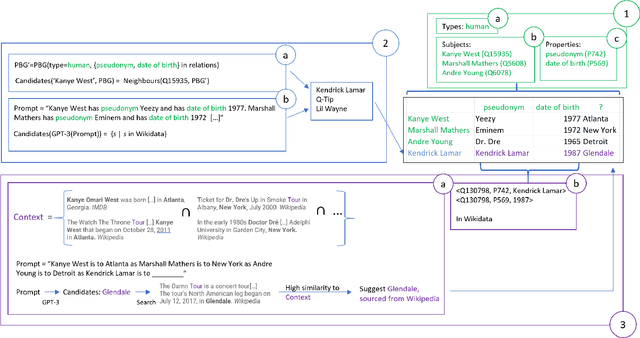
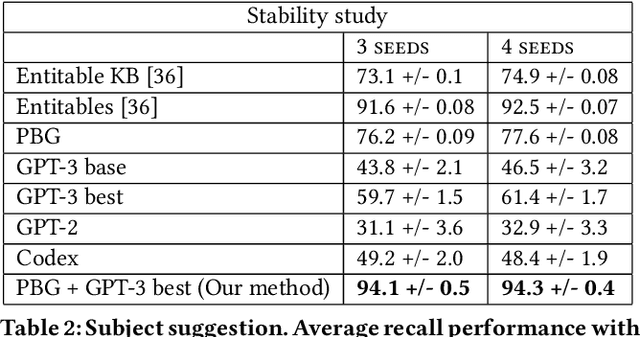
Abstract:Row completion is the task of augmenting a given table of text and numbers with additional, relevant rows. The task divides into two steps: subject suggestion, the task of populating the main column; and gap filling, the task of populating the remaining columns. We present state-of-the-art results for subject suggestion and gap filling measured on a standard benchmark (WikiTables). Our idea is to solve this task by harmoniously combining knowledge base table interpretation and free text generation. We interpret the table using the knowledge base to suggest new rows and generate metadata like headers through property linking. To improve candidate diversity, we synthesize additional rows using free text generation via GPT-3, and crucially, we exploit the metadata we interpret to produce better prompts for text generation. Finally, we verify that the additional synthesized content can be linked to the knowledge base or a trusted web source such as Wikipedia.
 Add to Chrome
Add to Chrome Add to Firefox
Add to Firefox Add to Edge
Add to Edge